There are around 100 national and multi-national elections due to take place in 2019. But the two polls which will garner the most coverage are one which won’t take place until 2020 – the US Presidential election – and one which may or may not happen – an early UK general election.
However there are some highly significant elections coming up which will have an impact on world affairs. I’ve picked a dozen which I think are worth watching:
-
Nigeria: President and Parliament (due 16th February)
Africa’s biggest oil producer goes to the polls
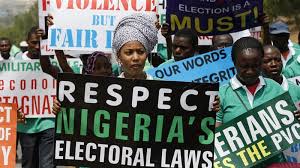 Nigeria’s general election will see the country choose a President and Parliament for the next four years. The President will be the candidate receiving the most votes, but they will only avoid a second round if they get over 25% of the votes in two thirds of the states. Representatives will be elected from each of 360 single member seats and Senators in 108 single member seats using first-past-the-post.
Nigeria’s general election will see the country choose a President and Parliament for the next four years. The President will be the candidate receiving the most votes, but they will only avoid a second round if they get over 25% of the votes in two thirds of the states. Representatives will be elected from each of 360 single member seats and Senators in 108 single member seats using first-past-the-post.
President Buhari is seeking re-election and will face challenges from at least 15 other candidates led by former Vice President Atiku Abubakar.
One factor in this election will be the on-going challenges of the Boko Haram insurgency in the north.
Chatham House and IRI have each produced primers.
-
Thailand: Parliament (due 24th March)
Will the military hand over power?
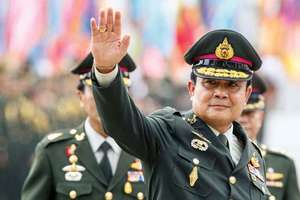 These elections are taking place five years after the last vote. But any idea that the regime elected in 2014 has been governing since then would be wrong. The 2014 elections were declared invalid as the vote had been delayed in part of the country. Rather than the replacement elections that were due the following year, the army launched a coup d’etat and have been in power ever since. They promised new elections in 2015, 2016, 2017 and again in 2018 but none were held.
These elections are taking place five years after the last vote. But any idea that the regime elected in 2014 has been governing since then would be wrong. The 2014 elections were declared invalid as the vote had been delayed in part of the country. Rather than the replacement elections that were due the following year, the army launched a coup d’etat and have been in power ever since. They promised new elections in 2015, 2016, 2017 and again in 2018 but none were held.
After these elections, the new Prime Minister will be chosen by a majority vote of both houses of Parliament. The upper house, the Senate, will be entirely appointed by the National Council for Peace and Order (NCPO), the name given to the military junta following the 2014 coup. A late decision to delay re-districting has also caused controversy.
Four political parties have significant support in opinion polls. The Pheu Thai, Forward Future and Democrat parties are broadly oppositional with the Phalang Pracharat being seen as a vehicle for former general and current Prime Minister Prayut Chan-o-cha (pictured).
The main question will be whether the military allows the popular will of the people as expressed through the ballot box to prevail, or whether they seek to impose their chosen candidate as Prime Minister whatever the result.
-
Ukraine: President (due 31st March) and Parliament (due end of October)
Old hands do battle once again as conflict rages in the East
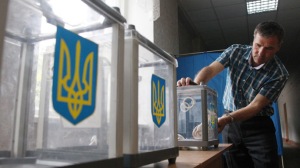 Holding elections when a country is engaged in armed conflict is a testing proposition. Ukraine looks like it will be doing so twice in 2019. Crimea has been annexed by Russia and there are ongoing conflicts in the Donbass region which means polls won’t be held there. At the same time, large numbers of ethnic Russian citizens of Ukraine have fled the country. Since the country gained independence in 1991, Ukraine has seen two revolutions and the country has tilted decisively to a pro-western and nationalist standpoint.
Holding elections when a country is engaged in armed conflict is a testing proposition. Ukraine looks like it will be doing so twice in 2019. Crimea has been annexed by Russia and there are ongoing conflicts in the Donbass region which means polls won’t be held there. At the same time, large numbers of ethnic Russian citizens of Ukraine have fled the country. Since the country gained independence in 1991, Ukraine has seen two revolutions and the country has tilted decisively to a pro-western and nationalist standpoint.
The Presidential election will pitch two old hands against each other with incumbent Petro Poroshenko up against former Prime Minister Yulia Tymoshenko. However, polls suggest that each of these candidates has high negative ratings and there are likely to be at least a dozen other contestants. You can expect this contest to go to a second round towards the end of April.
Six months later the country will go to the polls again in Parliamentary elections. A lot can and will change before then, but it is likely there will be no bloc with an overall majority.
Elections often see a ramping up in rhetoric and some heated conditions. In most countries that subsides very quickly with no lasting impact. Ukraine, however, might be a different case.
-
Israel: Parliament (due 9th April)
Will Netanyahu win another term?
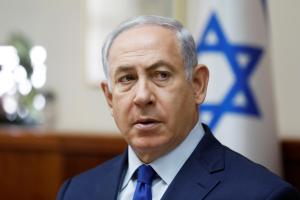 Israeli elections are always complex matters. These early polls have been called after Benjamin Netanyahu’s coalition suffered the loss of one of its partners. But the traditional opposition coalition has also fallen apart and so the main challenge will come from the Attorney General – who promises to reach a decision on indicting the PM on fraud bribery and breach of trust charges – and from former Army Chief of Staff Benny Gantz who has launched a new party.
Israeli elections are always complex matters. These early polls have been called after Benjamin Netanyahu’s coalition suffered the loss of one of its partners. But the traditional opposition coalition has also fallen apart and so the main challenge will come from the Attorney General – who promises to reach a decision on indicting the PM on fraud bribery and breach of trust charges – and from former Army Chief of Staff Benny Gantz who has launched a new party.
The outcome of the election (which uses a national list system) will be one where no party is even close to a majority and so coalition negotiations will begin.
-
South Africa: Parliament (due April)
ANC victory looks likely again, but will a genuine challenger emerge?
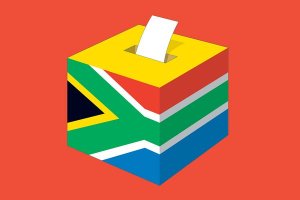 Will this election finally see the end for the ANC? Probably not, but the party of Nelson Mandela is mired in corruption allegations and new president Cyril Ramaphosa is having a hard time keeping his party together. He faces challenges from the main opposition Democratic Alliance and the left wing EFF as well as a host of smaller parties.
Will this election finally see the end for the ANC? Probably not, but the party of Nelson Mandela is mired in corruption allegations and new president Cyril Ramaphosa is having a hard time keeping his party together. He faces challenges from the main opposition Democratic Alliance and the left wing EFF as well as a host of smaller parties.
The ANC still has a commanding lead in opinion polls and failure to win an overall majority would be a massive surprise. But the relative performance of the opposition parties could give an indication as to where the country is heading in the future.
-
India: Parliament (due between April and May)
Massive forces collide in the world’s biggest democracy
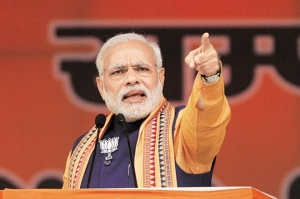 India will vote this spring in an election that looks likely to produce a hung parliament. There will be 543 MPs elected in single member, first-past-the-post constituencies.
India will vote this spring in an election that looks likely to produce a hung parliament. There will be 543 MPs elected in single member, first-past-the-post constituencies.
The ruling Hindu Nationalist BJP will head a thirteen party coalition known as the National Democratic Alliance. Their traditional opponents, the Congress Party, will head the United Progressive Alliance. Dozens of other parties and independent candidates will also contest the polls with alliances often based on local interests.
One of the key issues for outsiders will be the influence of fake news and social media in the election. Although the country is one of the world’s poorest, the number of smart phones has grown hugely since the last contest and a huge proportion of the population is said to use these as their main source of news. The spread of false information through social media platforms such as WhatsApp has been reported as being responsible for mob lynchings and parties have put a lot of effort into establishing pyramids for disseminating information about the campaign. As these are closed groups there is no systematic monitoring of what is being said.
-
Australia: Senate and House (due by 18th May for half of the Senate and by 2nd November for the House of Representatives and Territory Senators)
Highly combative election with outcome in the balance
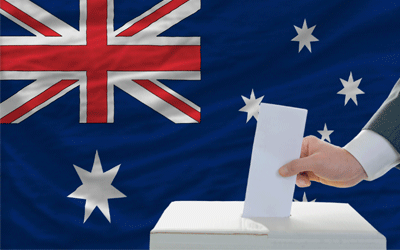 Australia is interesting for election watchers because of its use of compulsory voting (there are 22 countries which do so worldwide) and voting systems. The lower chamber – the 151 member House of Representatives – uses the Alternative Vote (AV or instant run off voting). This is a preferential system in single member seats so the elected representative will have been chosen by more than half of those who vote. The upper chamber, the Senate, has 76 members and is chosen by the single transferable vote (STV). However it is a bastardised form of STV where voters can choose to cast their vote for a party list in party preferred order (a single, simple tick ‘above the line’) or they have to indicate a preference for at least 60% of the potentially hundreds of candidates ‘below the line’.
Australia is interesting for election watchers because of its use of compulsory voting (there are 22 countries which do so worldwide) and voting systems. The lower chamber – the 151 member House of Representatives – uses the Alternative Vote (AV or instant run off voting). This is a preferential system in single member seats so the elected representative will have been chosen by more than half of those who vote. The upper chamber, the Senate, has 76 members and is chosen by the single transferable vote (STV). However it is a bastardised form of STV where voters can choose to cast their vote for a party list in party preferred order (a single, simple tick ‘above the line’) or they have to indicate a preference for at least 60% of the potentially hundreds of candidates ‘below the line’.
The two main parties in the country are Labor and the Liberal-National coalition. The coalition held the majority under Premier Malcolm Turnbull until he was deposed as Prime Minister in 2018. He subsequently resigned his seat which was lost to an independent in the subsequent by-election. This also caused the coalition to lose its majority.
Current opinion polls have the two main groupings neck and neck on about 38% but with a marginal preference for the Labor Party in two party preference polling. The Greens are polling at about 9% with the populist One Nation Party on about 6% and others at about 10%.
Australia is a turbulent political environment and this campaign promises to be highly combative.
-
Afghanistan: President (due 20th July)
Failures of liberal international order likely to be exposed again
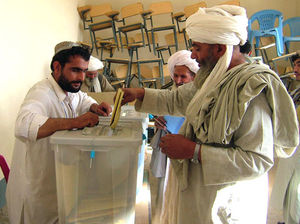 Afghanistan highlights the truism that good intentions cannot make up for an absence of planning or understanding of local circumstances. The failure of the west to import a sustainable system of democracy into Afghanistan is, of course, mainly due to the civil war which has been on-going since the US started military action in 2001. But many are asking whether democratic politics will ever become the norm in the country.
Afghanistan highlights the truism that good intentions cannot make up for an absence of planning or understanding of local circumstances. The failure of the west to import a sustainable system of democracy into Afghanistan is, of course, mainly due to the civil war which has been on-going since the US started military action in 2001. But many are asking whether democratic politics will ever become the norm in the country.
There are currently ten declared candidates for the poll – all men – including incumbent Ashraf Ghani and his main challenger last time, the country’s chief executive Abdullah Abdullah.
The 2014 Presidential poll was mired by allegations of fraud. Parliamentary elections were held in 2018 but issues again arose with potential fraud. More than 20 million polling cards are in circulation for a voting age population of 12 million. As voters are permitted to cast their ballot in any polling station, the potential for fraud is high. During the parliamentary elections many polling stations opened late or not at all and there were widespread reports of violent attacks on election day.
-
Canada: House of Commons (due October)
Blue eyed poster boy of the liberals faces his biggest challenge
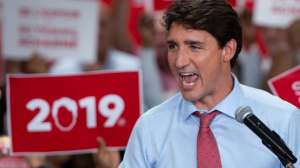 Darling of the liberals, Justin Trudeau will face re-election in the autumn in a tough contest. He will be challenged from the right by the Conservatives who have recovered from their near fatal defeats of the early 2000’s and even led in opinion polls early last year. From the left will come the challenge of the NDP who are polling around 15%.
Darling of the liberals, Justin Trudeau will face re-election in the autumn in a tough contest. He will be challenged from the right by the Conservatives who have recovered from their near fatal defeats of the early 2000’s and even led in opinion polls early last year. From the left will come the challenge of the NDP who are polling around 15%.
Also running will be the Bloc Quebecois who gained just ten seats last time and find it more difficult to challenege a charismatic Francophone in national elections. The party has also seen the majority of MPs left in protest at leader Martine Ouellet, before rejoining after she quit. The Greens mustered just one seat last time but have 5-8% of the polls and could deny the Liberals some seats just by running. The People’s Party, a populist right wing grouping established by a defecting Conservative MP, will also be contesting.
Trudeau has faced the realities of government since his election win four years ago. A number of manifesto commitments have fallen by the wayside – including a pledge to reform the first-past-the-post voting system – but his party still seems likely to be the largest grouping in the new parliament.
-
Argentina: President and Parliament (due October)
How will South America’s second largest country react to Brazil’s rightward shift?
 Argentina is one of a number of South American nations which will hold elections this autumn and is another country to feature compulsory voting with all those aged 18-70 required to cast a ballot. For those aged over 70, voting is not compulsory. Argentina also allows 16 and 17 year olds to vote – again it is not compulsory for this age group.
Argentina is one of a number of South American nations which will hold elections this autumn and is another country to feature compulsory voting with all those aged 18-70 required to cast a ballot. For those aged over 70, voting is not compulsory. Argentina also allows 16 and 17 year olds to vote – again it is not compulsory for this age group.
The President is elected for a four year term using a two round electoral system. To win in the first round the leading candidate must secure at least 45% of the votes cast or more than 40% and be at least 10% ahead of the next candidate. If neither of these conditions is satisfied then the top two candidates will go to a second round four weeks later.
In Parliament, the Chamber of Deputies is elected using a closed list system based on the provinces. 130 of the 257 seats are up for election this year for a four year period. The Senate is elected in thirds and this year eight provinces will elect three senators each. In each province two senators are won by the party gaining the most votes and one senator is won by the party finishing second.
The split nature of Parliamentary elections emphasises the supremacy of the Presidency within the Argentine constitution. President Mauricio Macri (pictured) has confirmed that he intends to run for a second term. One potential opponent will be Cristina Fernandez, his predecessor.
-
Greece: Parliament (due October)
Will Tsipras be rewarded or ousted for Macedonia deal?
 Alexis Tsipras engaged in some very courageous political steps when he forged an agreement with Zoran Zaev, the Prime Minister of Macedonia to call a truce to the battle over the name of Greece’s northern neighbour. Controversial in both countries, the decision to recognise the Republic of North Macedonia opens up the prospect of the former Yugoslav republic joining both the EU and NATO.
Alexis Tsipras engaged in some very courageous political steps when he forged an agreement with Zoran Zaev, the Prime Minister of Macedonia to call a truce to the battle over the name of Greece’s northern neighbour. Controversial in both countries, the decision to recognise the Republic of North Macedonia opens up the prospect of the former Yugoslav republic joining both the EU and NATO.
But the cost paid by Tsipras for such an agreement may prove high. His coalition has fallen apart and the Macedonia deal has reinvigorated the opposition. The question is, will the voters reward his courage or punish him for a deal which pollsters say was opposed by two-thirds of Greeks. The election is not due until the autumn and an indicator may come with the Presidential poll this spring in North Macedonia. If voters there have forgiven Zaev, then maybe Greeks will do the same for Tsipras.
The Macedonia issue is not the only concern for voters of course. Immigration and the slowly recovering economy will also feature highly in the minds of electors as they go to vote.
-
Poland: Parliament (due November)
A test for the European Right
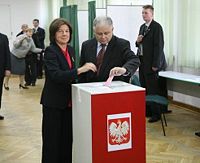 The recent trend for populist and right-wing governments is exemplified in Europe by both Poland and Hungary. And whilst in Hungary Prime Minister Viktor Orban has steadily drifted rightwards whilst being in power, in Poland the Law and Justice (PiS) party gained power at the last election from their main opponents Civic Platform (PO). The two parties remain at the head of opinion polls with seven others hovering between 3 and 7%.
The recent trend for populist and right-wing governments is exemplified in Europe by both Poland and Hungary. And whilst in Hungary Prime Minister Viktor Orban has steadily drifted rightwards whilst being in power, in Poland the Law and Justice (PiS) party gained power at the last election from their main opponents Civic Platform (PO). The two parties remain at the head of opinion polls with seven others hovering between 3 and 7%.
The election will be conducted by open list PR voting with a 5% threshold.
Over the last four years, the PiS has held an overall majority and has used this to make it more difficult for the Supreme Court to overturn government decisions and to give the government greater control over state TV and radio. These changes have led to protests by opposition parties. The question for voters is whether to consolidate the right wing government or drift back towards the centre.
